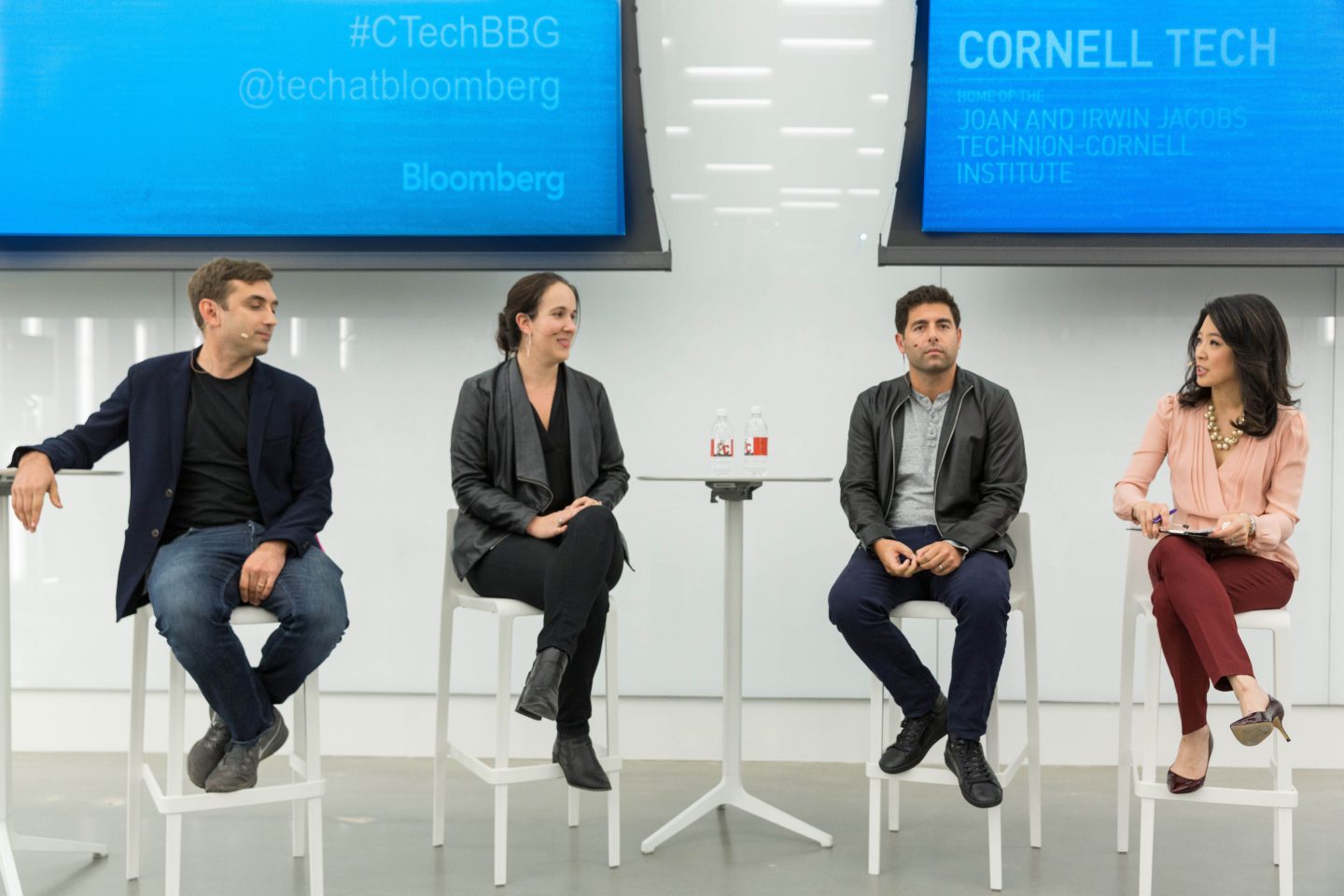How to Use Technology and Educational Programs to Spur Lifelong Learning
Categories
Cornell Tech @ Bloomberg, Industry Collaborations, New York City

Technology is rapidly transforming how we work. It has enabled us to work remotely, sell services worldwide, start businesses online with little overhead, and communicate 24/7. Technology is also transforming the skills we need to be successful in the workplace and how we learn them.
The latest CornellTech@Bloomberg series featured a conversation with three leaders in skills-based learning and education: Jake Schwartz, co-founder and CEO of General Assembly, Leah Belsky, vice president of global enterprise development at Coursera, and Jeremy Snepar, founder and CEO of New York Code + Design Academy. Bloomberg’s Scarlet Fu moderated the conversation at Cornell Tech. They discussed how their companies and similar educational platforms can have a symbiotic relationship with universities and companies.
Allowing people to learn job specific skills
The panelists’ schools and similar companies give people the opportunity to learn new skills after graduating from undergraduate and graduate school programs. In fact, Snepar was inspired to start New York Code + Design Academy after working at a film school and seeing the benefits of vocational training. Large institutions can’t always teach every single relevant skill, especially because industries are constantly evolving and adapting.
If you graduated before social media, for example, it would have been impossible to learn social media marketing skills in college or graduate school but you still need to learn the skills to excel. People can learn specific job-related tasks like how to use Google Analytics, Photoshop, or even Snapchat stories.
Schwartz and Belsky both said that their organizations also help companies create learning and development programs.
“We have worked with almost 150 of the Fortune 500 companies and about third of the Fortune 100 companies. We are doing a lot of work helping companies think about their relationship to talent in the future,” said Schwartz noting that General Assembly helps companies recruit talent and learn them new skills. Some companies have even created their own Coursera courses and incentives for taking their courses and others such as the opportunity to interview for internal job openings or increase the likelihood of receiving a promotion.
Providing an additional educational resource
Universities can use online courses to benefit their students and faculty. “So much value happens in the classroom with the interactions between students themselves and students and professors and teacher’s assistants, but has to be supported with online content so they can catch up if they didn’t catch a concept. There has to be a balance,” Snepar explained. It’s also possible that professors could save time by offering lectures online so they can spend more time in office hours, meeting with students in small groups, or researching.
While companies like General Assembly, Coursera, and New York Code + Design Academy won’t replace universities, they provide additional educational resources. The additive relationship between Coursera and universities is evident in the fact that more than 150 universities put their courses online and provide the option for students to earn course credentials or degrees, explained Belsky. “We are helping universities extend into the lifelong learning space and be part of the future ecosystem,” she added.
Media Highlights
Tech Policy Press
Content Moderation, Encryption, and the LawRELATED STORIES





